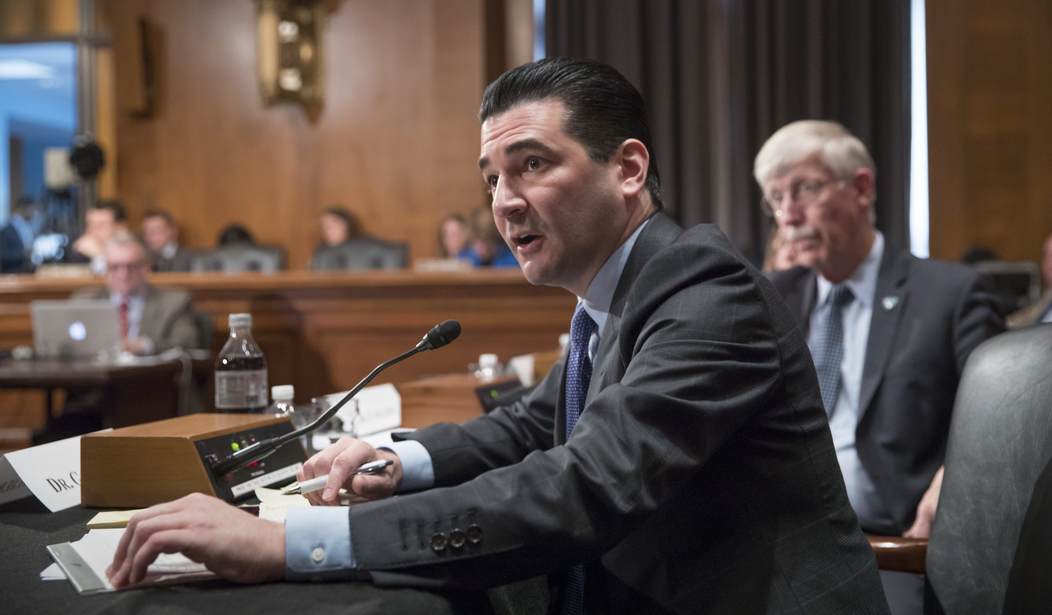WASHINGTON – Congress should boost the National Institutes of Health’s opioid abuse research funding from $116 million annually to $400 million or $500 million so that the U.S. can faster develop non-addictive pain relief medication, NIH’s top official told the Senate Health Committee on Thursday.
“Putting our foot on the accelerator, working with industry in an unprecedented way to try to cut in half the amount of time it takes to develop that next generation of non-addictive but highly effective pain medicine is something we now want to see happen,” National Institutes of Health Director Francis Collins told the committee.
Chairman Lamar Alexander (R-Tenn.) said that committee staff would be in touch to consider that and other suggestions aired during the hearing.
NIH’s annual budget is about $31 billion. President Trump in May signed the 2017 Omnibus Appropriations bill, which boosted total funding for addiction services from $4.9 billion in 2016 to $5.4 billion for fiscal 2017.
So far this year, Congress has introduced 71 bills, resolutions and amendments related to the opioid crisis, which saw 33,000 opioid-related overdose deaths in 2015, the most recent year on record. Projections show that overdoses in 2016 could be as high as 60,000.
Sen. Susan Collins (R-Maine) asked her panel of officials from NIH, FDA, the Substance Abuse and Mental Health Services Administration and the Centers for Disease Control and Prevention why the issue seems to be getting worse with all the legislative and financial efforts being poured into the epidemic. She pointed to a recent report from the Portland Press Herald showing that Maine is on pace in 2017 to tally the same number of overdose deaths as in 2016, which saw 376 deaths.
“It’s getting worse, and this headline disturbed me greatly because I feel like there’s been so much focus on the opioid problem — the epidemic that is tearing apart our communities and costing the lives of so many,” she said. “Yet we seem not to be making the kind of progress that we need to make.”
Food and Drug Administration Commissioner Scott Gottlieb said that the epidemic comes down to math: The more people exposed to opioids, the more individuals will become addicted. He recommended further limiting how many opioids physicians can prescribe to their patients.
“Most people who become addicted will become medically addicted oftentimes through an immediate release formation of a drug – Vicodin, Percocet. Then they’ll move onto higher-dose formulations and eventually the low-cost alternative, which is street drugs,” Gottlieb said.
Sen. Collins and the rest of the panel agreed with Gottlieb, a former physician.
“I think that you’re absolutely right that we need to put more effort at the front end of this problem and reduce access by changing prescribing habits, particularly by allowing partial fills,” she said.
Francis Collins said that while he agrees, the U.S. cannot leave in the lurch some 25 million Americans who suffer from pain each day. That’s 1 in 12 Americans who experience pain that interferes with their daily lives, he said.
“We can’t leave them hanging with nothing to help them. What they have right now is not helping them, a lot of them chronic pain, where opioids are really not the appropriate treatment,” he said, adding that not many good alternatives exist for pain relief.
Among the alternatives he listed were cognitive behavioral therapy, acupuncture, transcranial magnetic stimulation and other methods for local nerve blocks. However, he said, many insurers do no reimburse for these options.
Assistant Secretary for Mental Health and Substance Use Elinore F. McCance-Katz said that most states do not have proper access to evidence-based treatments. She recommended more specialty care and better integration with primary care physicians.









Join the conversation as a VIP Member